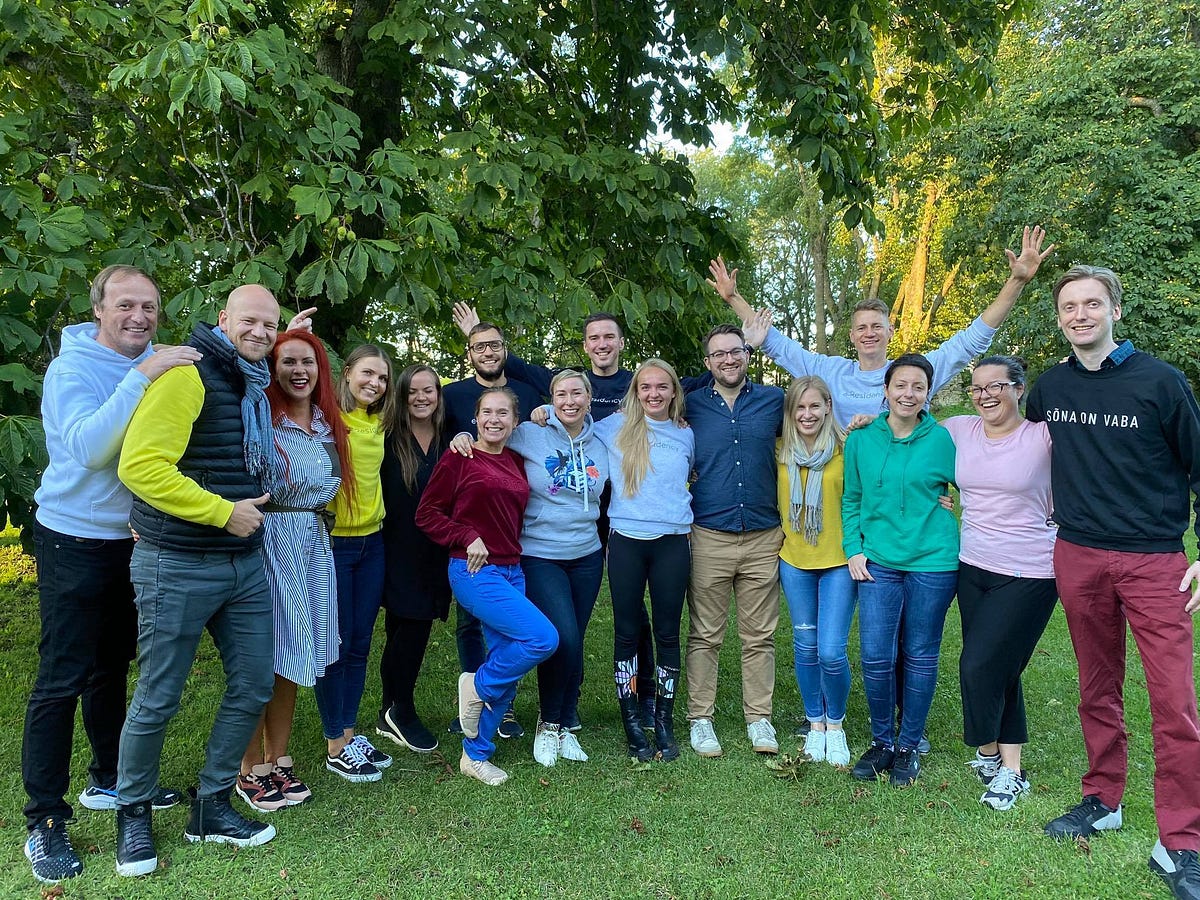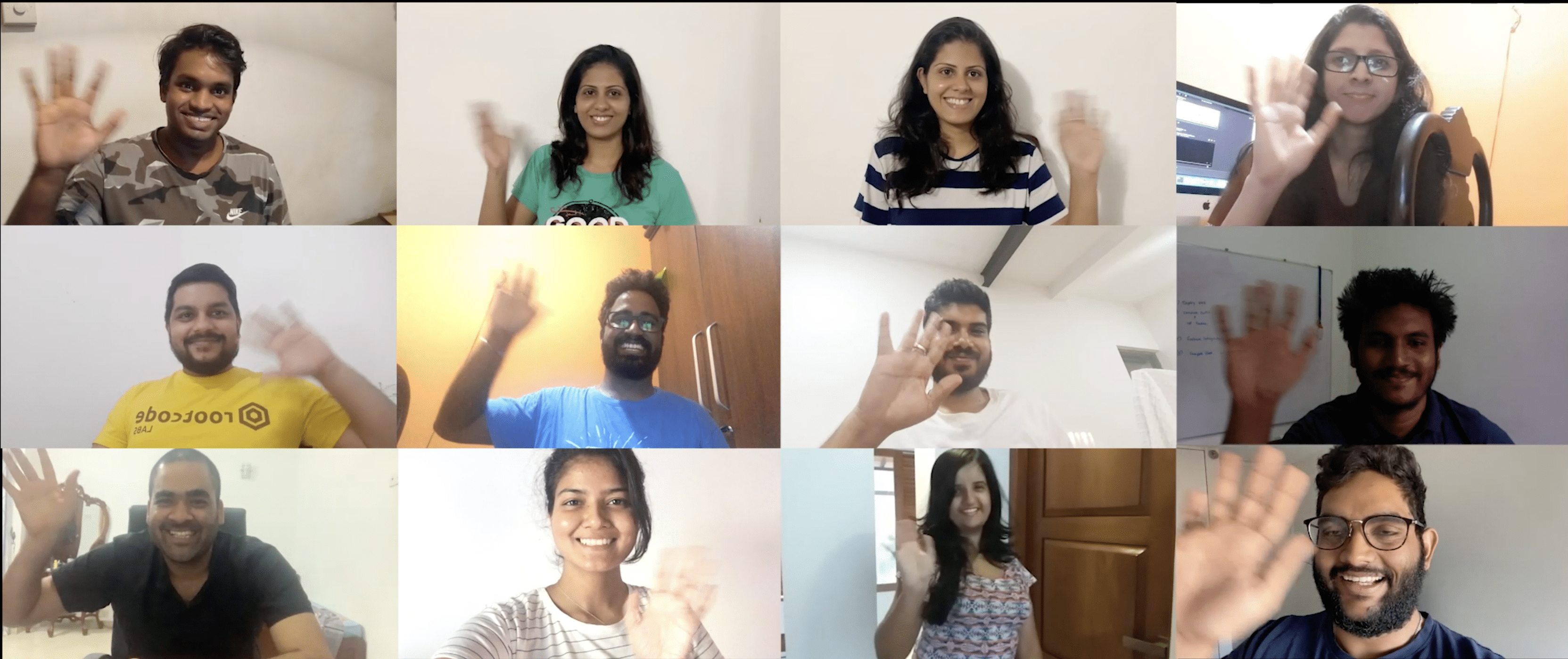looking back at 2020: adapting to the new normal
And looking forward to 2021: when e-Residency enters its next stage of development with new leadership

Phew, we’ve nearly made it to the end of 2020, a year which will forever be characterised by a microscopic virus and its disruptive effects on society, trade, business, and politics.
To sign off for the year, we offer you this small escape from your regular news cycle to look back at 2020 through the eyes of the e-Residency team. While we’ve all had to adapt, particularly in light of travel restrictions and stay-at-home government orders, e-Residency has still grown and improved in 2020.
The biggest news for us this year was a competition between COVID-19 and our transition to new leadership. But many other things were achieved — best represented by some facts and figures we have compiled. E-Residency applications and companies created by e-residents grew, we provided more events and content online, and launched several new features on our website.
Of course it would be very un-Estonian to look back without also looking forward to see what opportunities lie on the horizon. I’ll also cover in this blog post therefore some of the plans and projects we already have cooking up for 2021.
Welcome to our new Managing Director Lauri Haav
We would like to take this opportunity to introduce to our community e-Residency’s new Managing Director Lauri Haav. Lauri was recently elected by e-Residency’s Supervisory Board and will start work on 4 January 2021.
On his decision to accept the role, he explained:

“I joined the e-Residency team with the desire to give back to Estonia — my motivation is that simple. I can make the best use of my previous experience and network in managing the program.”
Lauri has more than 20 years of experience working in the IT and fintech fields, including co-founding MarkIT.eu and working at Proekspert, Monese, and Helmes. His mandated objective is to lead e-Residency through its next stage of development. Looking forward, Lauri observes:
“Right now, we are seeing a significant shift in the world of work, and this is a major opportunity to position e-Residency and Estonia at the forefront of remote work and entrepreneurship.”
Of course, the election of a new leader means farewell to our former one — Ott Vatter. Ott worked with the e-Residency program since its inception in 2014, so we haven’t simply lost a boss but also a huge amount of experience and institutional memory and a great friend too!
Read more about Ott’s decision to leave e-Residency in his open letter to the community from September:
Adapting to the ‘New Normal’
It’s undeniable that 2020 has been a year of change for the whole world. And e-Residency has not been spared from having to adapt.
As I write this article, the Estonian Government has just announced new restrictions in Estonia starting next week as a result of the country’s increasing coronavirus infection rate. So it will be a very low-key holiday season here while we eagerly await the vaccination roll-out in early 2021.
Adapting to the new ‘stay at home’ normal was not super difficult for the e-Residency team or our community of e-residents as most of us are already used to working and running businesses remotely. But it did create challenges for travel and business survival. E-residents worked hard to adapt to the crisis, as we proudly discovered when we surveyed our community back in April:
The e-Residency team supported our community as much as possible with a series of covid updates on the blog packed with information about card pickup in light of travel restrictions, economic measures, and tips for working from home. In addition, we launched a community support platform, where e-residents shared their info and exchanged what they needed with their own expertise.
Like the rest of the world, travel restrictions meant a move online for e-Residency. We expanded our normal monthly webinar offerings to thematic and country-based webinars, hosted two digital summits for e-residents in Germany and Ukraine respectively, and participated in several other online conferences and events, including a global hackathon to address the crisis.
We were inspired by e-resident Alagan and his team, when they won the ‘future of work’ track at the Global Hack with Expert Republic (formerly Serw), a platform developed in just 48 hours to help customers connect with experts online.
Read his fantastic story here:
2020 also saw the Estonian Government launch its much-anticipated digital nomad visa in recognition of the growing number of remote workers and entrepreneurs, which only accelerated due to government and company ‘stay-home’ policies as a result of covid.
Read more in our blog post:
Facts & figures
Despite the economic and social conditions, e-Residency applications grew in 2020, by nearly 13,000 (including renewals). The largest markets were Russia, Ukraine, Germany, Spain, France, Turkey, and Italy.
E-residents started 3,350 companies (as at 30 November) with the majority being in sectors including IT & communications, professional, scientific & technical services, trade & commerce (including eCommerce), and finance & insurance.
The e-Residency Marketplace added nineteen new service providers offering everything from company establishment and bookkeeping, to legal and country-focused tax consulting services, and PR/marketing/sales support. 2020 also saw a new 2.0 version of the Marketplace launched with new compare and filter features, and additional resources to help e-residents choose service providers for their businesses.
E-Residency hosted 35 webinars in 2020, including 11 ‘getting started with e-Residency’ webinars, 11 thematic webinars, and 13 country-focused webinars. For the first time, we also hosted two digital summits, one on e-residents based in Germany, and another on Ukraine, and an online panel discussion with the e-Residency founders for our 6th birthday.

This is not to mention the dozens of external events various members of the e-Residency team participated in (mostly virtually), including Websummit, Latitude59, sTARTUp Day, Freedom Business Summit, Global Nomads Summit, Running Remote, Tech Open Air Berlin, as well as events for Go Global, Draper Startup House, e-Estonia Briefing Centre, Estonian Ministry of Foreign Affairs, and Invest in Estonia.
Find and watch recordings of these webinars and some of the the events on our YouTube channel:
In 2020, e-Residency received over 6,300 inquiries via our support page. The main topics of inquiry were: business related questions (company incorporation, taxes, Estonian business environment), how to submit or change an e-Residency application, card pickup (most questions related to covid), and of course banking options and challenges.
This year, we also published 60 articles on the blog. The most read topics were about the digital nomad visa, submitting the annual report, covid updates, and e-resident stories. We saw an increase in subscribers to the blog and in followers of all primary writers.
We also saw community growth in our social media platforms, with an increase of about 3000 followers on Facebook, 2000 on Linkedin and Instagram, and 1000 on Twitter. Welcome to all our new community members!

The content most engaged with by our audience on social media contained news and announcements and e-resident stories. The favourite visual used across platforms was — as usual — the e-Residency digital ID card!
Looking forward to 2021
The most welcome news for 2021 is that the list of service points for new e-residents to pick up their digital ID cards will expand to include Bangkok, Johannesburg, São Paulo, Singapore, and Tokyo. We hope these pickup points will open in Spring and will keep the community posted on developments.
We soft launched our newest Company List feature late this year to enable e-residents to publish their Estonian company profile on our website. Its aim is to provide a secure platform that contains information on verified e-resident companies and also to give e-residents a chance to highlight their products and services in order to find new customers and business partners. If you haven’t already done so, log in and submit your company profile! In 2021, we’ll continue improving this feature and also look at how else we can help support community and networking among e-residents and also Estonians.
In 2021, e-Residency will be launching its new monthly webinar series, a two-part program of webinars designed to provide essential information to people interested in applying for e-Residency and starting a business in Estonia.
Register now to attend these webinars in the first quarter of 2021:
- Part One: All you need to know before applying for e-Residency
- Part Two: All you need to know about starting your company in Estonia with e-Residency
We will also continue providing both country-focused and thematic webinars in collaboration with service providers and e-residents, and roll out more larger online events similar to the digital summits for Germany and Ukraine.
You may have noticed that the e-Residency website has recently undergone some changes to how it is structured and the content available. This is part of our project to improve the information provided on — and usability of — the website in light of the differing stages of an e-resident’s journey through becoming an e-resident, starting an Estonian company, and growing their business remotely. This work will continue in early 2021 as will our work to:
- update and add content to the Knowledge Base,
- present even more inspiring e-resident stories on the blog, and
- connect with you all on social media. By the way, tag us and keep us updated on what you’re doing!
We know that business banking is a huge challenge for some of you — we read about these struggles in our support channels and social media, and hear about them in our conversations with you. To see how we can address them, we’re kicking off 2021 with a survey about business banking. If you are an e-resident with a company in Estonia, please look out for an invitation to take part in this survey in January. The more responses we receive, the more information we will have to analyse this topic and improve this area for you all.
Finally, the pandemic has put under the microscope the challenge of e-Residency card pickup when travel is restricted within and between countries. We have already started looking into different solutions to address this, i.e. by giving e-residents more options to access Estonia’s digital nation, such as a mobile authentication tool. This work continues in 2021 and we hope we can share more on this topic soon.
The e-Residency team is looking forward to some downtime over the holiday season to rest and recuperate in preparation for next year.
We are also looking forward to meeting you in 2021, continuing to follow your entrepreneurial journeys, and supporting in any way we can.
Have a safe holiday season and a Happy New Year from all of us here at e-Residency!





